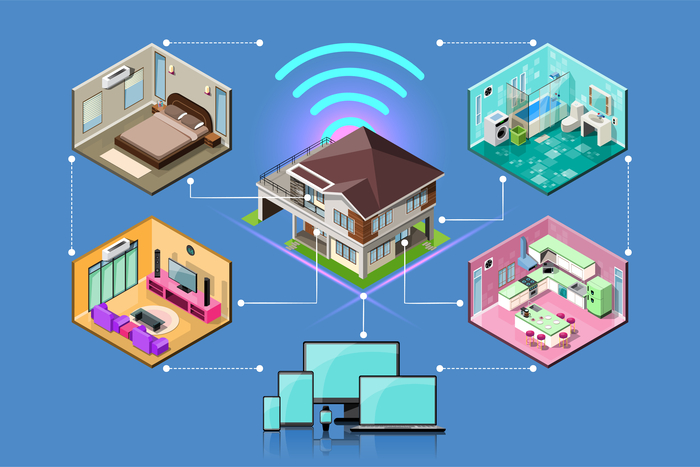Best practices for Data Privacy to secure your Home Wifi Network
October 21, 2024

In an increasingly digital world, our reliance on internet connectivity has grown exponentially. From streaming entertainment to working remotely, the internet plays a pivotal role in everyday life. With such dependence, securing your home WiFi network has become essential to protect against data breaches and cyber threats.
Understand the Importance of Network Security
As high-speed internet becomes more accessible across the state, especially with advancements in fiber internet, the risks to home networks have grown as well. Using a secure connection is no longer a luxury; it’s a necessity. While many enjoy the benefits of a reliable internet service provider in Kerala, ensuring that your WiFi network is safe requires more than just choosing the best broadband connection.
Set Up Strong and Unique Passwords
The first line of defense for any WiFi network is the password. Using weak or default passwords makes your network vulnerable to unauthorized access. It’s recommended to use a combination of upper and lowercase letters, numbers, and special characters. Updating your password regularly adds an extra layer of protection.
Enable Network Encryption
Most modern WiFi routers offer various encryption methods to secure data. WPA3 is the latest standard and is considered the most secure. If your router supports it, make sure to enable it. Encryption ensures that any data sent across your network is scrambled, making it difficult for hackers to access sensitive information.
Regularly Update Router Firmware
Much like how software updates improve the security of your devices, updating your router’s firmware is crucial for maintaining a secure network. Manufacturers release updates to fix vulnerabilities, enhance features, and improve security. Regularly checking for and installing these updates will reduce potential risks.
Turn Off Remote Access Features
Many routers come with remote access features that allow users to control their network settings from outside their home. While convenient, this can create vulnerabilities, especially if proper security protocols are not in place. Turning off remote access when not needed is a simple yet effective way to enhance security.
Monitor Connected Devices
With multiple devices connecting to your home network, from smartphones to smart appliances, it is essential to regularly monitor which devices have access. Limiting access to trusted devices and disconnecting those that are no longer used helps reduce the likelihood of a security breach. Most routers offer options to view connected devices and even block unauthorized ones.
Use a Reliable Internet Service Provider
Having the best security practices in place is essential, but so is choosing a reliable internet service provider that prioritizes customer security. Whether you are using a fiber internet connection or a standard broadband setup, working with a trustworthy provider ensures that your network is less vulnerable to external threats. Asianet Broadband offers such services with advanced security measures to keep your data safe.
Secure Your Network with Asianet Broadband
Securing your home WiFi network is a combination of strong passwords, up-to-date encryption, regular monitoring, and trusted services. By taking these precautions, you can safeguard your data and enjoy the benefits of high-speed internet without worrying about potential threats.
For those seeking reliable and secure internet services, Asianet Broadband offers the best broadband connection in Kerala, equipped with robust security features to ensure your home network remains protected.

